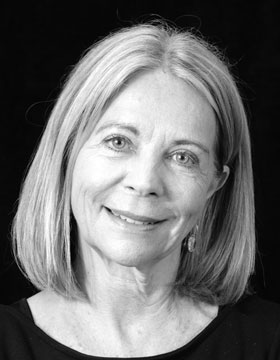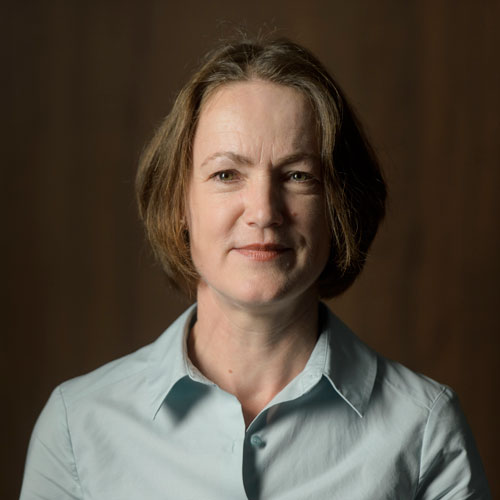Soon 50 Years Reforming Social Protection Systems: What Future for Public Provision?
27.–28. April 2017
The aim of this workshop is to bring together specialists from different backgrounds (Sociology, Economics, Political Science, Political Philosophy, History) and schools of thought, all based in different regions of the world for a brainstorming session on the major challenges faced by welfare systems and the sphere of social reproduction under financialized capitalism. The goal is twofold: first, reflect if the idea of a long and continuous wave of reforms, beginning in the 1970s, holds, and is contemporary of a shift in the regime of accumulation, that has led, in the wake of the XXI century, to a profound restructuring in welfare regimes, in which the role of the State and of the public sphere has been upended. Second, it is to apprehend in what consists these new roles in times of capitalism dominated by finance. New categories emerge such as Debtfare States (Soederberg 2013) or New Regulatory States (Leisering 2014), suggesting that the State is no more committed to ensure public provision and preserve a public sphere indispensable to the realization of citizenship.
Context
In the mid-1970s, in the wake of the first economic crisis of the post war period, which followed the surge of an extraordinary period of prosperity experienced by Western economies, a primary wave of reforms of the social protection systems took shape. The debate was then extremely polarized on whether or not the retrenchment of the welfare states in developed countries was truly under way and how profoundly. Meanwhile, structural shifts in the job market (in favor of more flexibilization, instability and precariousness) dovetailed with a severe deceleration in the pace of growth, which, in turn, undermined the financing of the social protection edifice. This contributed to tension and continuous calls for “reform,” which gained strength and legitimacy insofar as policies to sustain aggregate demand were challenged as the cause of fiscal unbalances.
It is worth stressing that this wave of reforms was not limited to the advanced market societies but has also reached the developing world, in particular Latin America, with Chile pioneering the implementation of the first fully-funded pension scheme (1983) worldwide. The Chilean experiment, though paradigmatic for leading to the shutdown of the public system, was not an exception. Over the 1980s and the 1990s, various reforms take place all in the same direction—i.e., opposing the logics of the state-managed capitalism in providing public goods and services, breaking principles of solidarity, enhancing the role of the market in promoting wellbeing, increasing controls and means-test for the deserving poor, and transferring to families and individuals – notably women – risk-taking decisions.
Surprisingly, after 30 years of reforms, the new millennium is no exception and has advanced even further the idea that a radical overhaul of pensions, of the healthcare systems, or in the provision of education and training is still not only urgent, but inescapable if we are to avoid a socioeconomic disaster provoked by improvements in life expectancy, progress in science, and the democratization of access to education, especially higher education. In other words, the paradox of all sorts of welfare systems, constantly under the stress of reforms, is to have not stalled improving wellbeing. The 2000s have witnessed a wide round of new and wide reforms, tackling not only European countries, but also Latin American, Asian and so on.
Today, debt is reshaping the role of the State, the “content of citizenship,” and the ways in which individuals become part of a market consumer society or relate to each other. Debt also defines worlds of opportunities since modern finance has upended the logic of access to rights. To which extend changes underway in the framing of rights and in the regulation of the social will impact the design of macroeconomic policies (for instance, generalizing the rule of austerity, irrespective of the economic backdrop or level of development) and social policies (re-commodification instead of de-commodification; credit contracts replacing social contracts; market incorporation rather than social inclusion), breaking up with a complementarity that, for decades, has signaled that it would be possible to combine – with no damaging trade-offs – prosperity and security.
The regulation of poverty has also experimented a lifting. Anti-poverty schemes that are largely ineffective in lifting people out of poverty are now at the forefront of the fever of reforms. They have gained centrality. As a result, ambiguous formats of public provision surface. Ambiguous for combining positive features with risks of downsizing coverage and shrinking entitlements. For instance, non-contributory schemes tend to be integrated into previous contributory systems, as a relevant pillar of a distinct framework, clearly split in two: public provision would shrink, and focus on basic floors, whereas the coverage of other and various needs or contingencies would be delivered by the private, either commodified (insurances, savings, long term investments, fully funded schemes) or de-commodified (via non-remunerated female work or low-paid care jobs).
And yet, this trend seems to convey not only risks but its own demise. Funded pensions systems considered as the solution against problems of fiscal sustainability, given that they are supposed to be linked to assets and to public bonds, are suffering from the volatility of the stock market and basic interest rates close to zero. They may become insolvent and fail to provide a decent pension to allow older generations to withdraw from the labor market. In parallel, the three pillar strategy is gaining ground in many countries, with a very low but public benefit being guaranteed as a universal right. The question is then if social policy is gaining ground as the way forward for preventing poverty and extreme poverty rather than guaranteeing smooth consumption during inactivity. By the same token, the public-private relationship in the provision of healthcare is being reformatted in several developed and developing countries in favor of the private, now mainly funded through insurance premiums, with growing costs for families and levels of resolution that tend to decline. On another note, the crisis of care (Fraser 2016) offers no perspectives to be correctly readdressed. Access to college and university for being increasingly depended on student loans, represent a major thread for new generations in a period of low economic growth.
The retreat of the public seems inexorable under the pressure of financialized capitalism. Would this mean that this long phase of reforms would be attaining its climax?
Topics that might be addressed in this workshop:
- To what extent has the logic of debt altered the role of the State? Is there a path of convergence between developing and developed countries?
- What is the new division of labor between public and private provision? What are the main features of public policies in regulating the provision of goods and services?
- What are the democratic dilemmas derived from the new dynamics of market incorporation through debt? How consumer credit and debt are redefining welfare patterns?
- How is financialization reconfiguring social bonds and creating new dynamics for their creation and consolidation?
- What is the role for social policy in a context marked by strong cleavages (claims for more consumerism, increasingly associated to debt x claims for “de-growth” and preservation?)
- What are the implications for women’s lives in the “crisis of care” and how might this reshape gender relations?
- How are social institutions being reformatted? What is positive and what may be a threat to social protection?
- Is poverty gradually overruling the framework of a comprehensive social security system? How financial inclusion threatens social policies and turns them into collaterals?
Convener

Kontakt

Teilnehmer
Eliane Cristina
de Araújo Sbardellati
Universidade Estadual de Maringà
Ana Carolina
Cordilha
Université Paris 13
Ben
Fine
University of London
Andrew M.
Fischer
Erasmus University Rotterdam
David
Flacher
Université Paris 13
Lutz
Leisering
Universität Bielefeld
Rubén
Lo Vuolo
Centro Interdisciplinario para el Estudio de Politicas Publicas
Philip
Mader
University of Sussex, Brighton
Manfred
Nitsch
Freie Universität Berlin
Thomas
Palley
New York
Jonas
Pontusson
Université de Genève
Alfredo
Saad Filho
University of London
Susanne
Soederberg
Queen's University
Göran
Therborn
University of Cambridge, UK
Giacomo
Todeschini
Fellow
2016/2017
Universität Triest
Bénédicte
Zimmermann
Former Permanent Fellow
École des hautes études en sciences sociales, Paris
Dawid
Danilo Bartelt
Heinrich-Böll-Stiftung, Rio de Janeiro
Marco
Andreu
University of Warwick
Claus
Offe
Fellow
1991/1992
Universität Bremen
Arjun
Appadurai
New York University